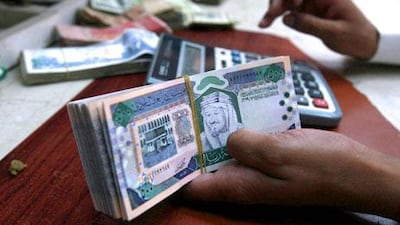Inflation in Saudi Arabia fell to 1.7 per cent on an annual basis last month, down from 2 per cent in August and 2.3 per cent in July, and driven by a drop in the price of food, government data showed.
The main driver of inflation in September remained residential rents, which rose 9.8 per cent, reflecting the 19.8 per cent increase in rents for apartments, Saudi Arabia’s General Authority for Statistics (Gastat) said in a report on Sunday.
The price of housing, water, electricity, gas and other fuels increased 8.1 per cent in September, while the prices of restaurants and hotels edged up 2.5 per cent due to an increase in catering services prices, Gastat said in its monthly CPI update.
“Prices for rents were the main driver of the inflation rate in September 2023 due to their high relative importance in the Saudi consumer basket, with a weight of 21 per cent,” Gastat said.
The cost of education increased by 1.8 per cent and recreation by 1.2 per cent.
In contrast, furnishings, household equipment and maintenance prices decreased by 2.8 per cent, due to the decrease in the cost of furniture, carpets and other floor coverings.
Clothing and footwear prices decreased by 3.6 per cent, due to the decrease in garments prices.
Food and beverages prices decreased by 0.2 per cent, due to a 6.3 per cent decrease in vegetables prices.
Compared with August 2022, consumer prices remained stable last month, the report said.
Inflation in Saudi Arabia, the Arab world's largest economy, has been declining steadily since starting at a rate of 3.4 per cent in January.
The kingdom has undertaken structural and fiscal reforms and managed to keep inflation in check, the International Monetary Fund said in September.
Inflation has soared globally on rising food and commodity prices after Russia's invasion of Ukraine in February.
Worldwide, inflation is forecast to decline from 8.7 per cent in 2022 to 6.9 per cent in 2023 and 5.8 per cent in 2024, the IMF said in October. But the forecasts for 2023 and 2024 are revised up by 0.1 percentage point and 0.6 percentage point, respectively.
Saudi Arabia, which was the fastest-growing major economy globally last year, is forecast to grow by 0.8 per cent in 2023, a downwards revision from 1.9 per cent projection in July, following 8.7 per cent growth in 2022, the Washington-based lender said.


